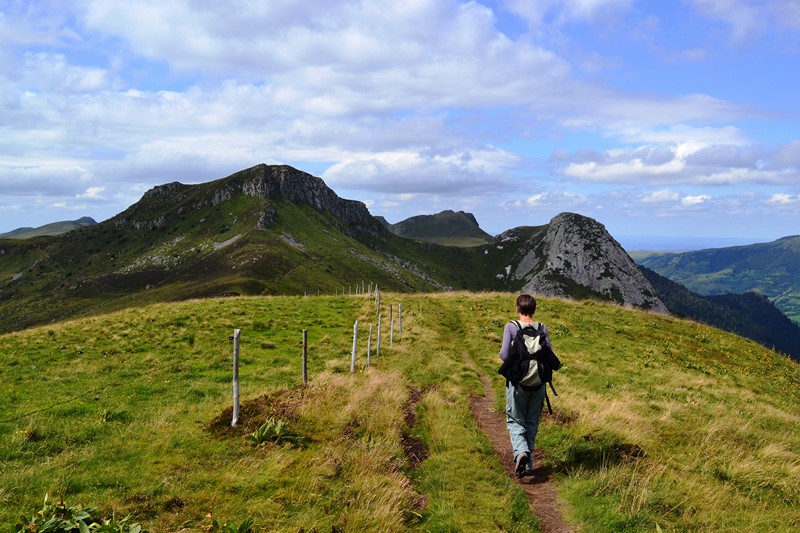When the walking gets tough
Top Tips - 28/02/24
Posted by William, 28th February 2024
It happens to all of us, no matter how fit we like to think we are. Your muscles feel tired, you're fed up and wondering what the hell you're doing there, or regretting ever having agreed to your friend's idea of a walking trip! Well, here are a few pointers on how to help you overcome that difficult patch and bask in the fulfillment of a walk or trek well done. The advice generally falls into two categories: those that will make a physiological difference to your body and those things that we could best describe as mind over matter.
Find a walking pace that's right for you: It may sound obvious, but to less experienced walkers it's sometimes difficult to know how fast a walking pace to adopt. If you're with others, you'll be tempted to try and keep up, even if it means you're walking at your limit. Don't do this, as you'll soon run out of energy and motivation. Try and find a walking pace that you think you can maintain for at least 20 minutes at a time. You'll enjoy your walking experience more which in turn motivates you to continue. Remember to have a longer break every 90 minutes or so to fully recuperate and eat some snacks.
Walking fit: Ever thought you were fitter than you seem to be or vice versa that friends who go to the gym every week, don't seem so fit once they're out walking on the trail? Each sport requires a different sort of physical effort and uses different muscle groups. This isn't meant to discourage you from doing different types of sports, but if you're going to be going on a walking trip, especially a long trek, the best preparation is always walking. Walking requires stamina and perseverance. By going out walking regularly you can build up your distances gradually, preparing both your body and your mind for the walking trip ahead. This also reduces the element of the unknown. Once on the walking trip, if you then become confronted by a difficult period you are better able to say to yourself, "well I know I can do this, so just keep going."
Set small goals: Some walks and treks include large climbs, which sometimes never seem to end. If you compare your progress with the overall goal, you'll often be disappointed and therefore become demotivated. Choose smaller, intermediate targets as places to rest for a minute or somewhere to stop for water. More advice about how to prepare for you walking trips to the mountains is available in our article: be prepared
Drink regularly: Your body needs fuel to keep going. Eat small high-energy snacks and drink regularly. When we are dehydrated we feel tired. The best way of maintaining a steady intake of water is to use a hands-free water bottle where a tube and a bite valve allow you to drink as you're walking along. These systems are now very common and can be purchased from most outdoor retailers.
Distract yourself: The hardest part about overcoming a difficult part of a walk is trying not to think about how tired or fed up we are. If we're not careful, negative thoughts can seem all invasive. What you need to do is to take your mind off it, just like with anything negative.
If you have company, have a conversation about something interesting that takes you away from your immediate surroundings. If you're on your own, or for when the conversation runs dry, then listening to music or your favourite podcast is a great way to distract yourself. It also gives your favourite songs a new lift. You can't beat great music and great surroundings. To really take you away from it, why not try voice books and be transported all the way to Narnia or Hogwarts!
The feeling of toughness may intensify when confronted by a particularly challenging walking trail. To prevent finding yourself in a situation where you lack the necessary skills for the walking holiday, we have implemented a walking grades system. Be sure to check it out before booking your holiday
Here are a few of our more challenging walking holidays
Cantal Mountains: The rugged heart of France
Cornwall's Dramatic Northern Coast

Pyrénées GR10: Part 2, St-Jean-Pied-de-Port - Estaut

